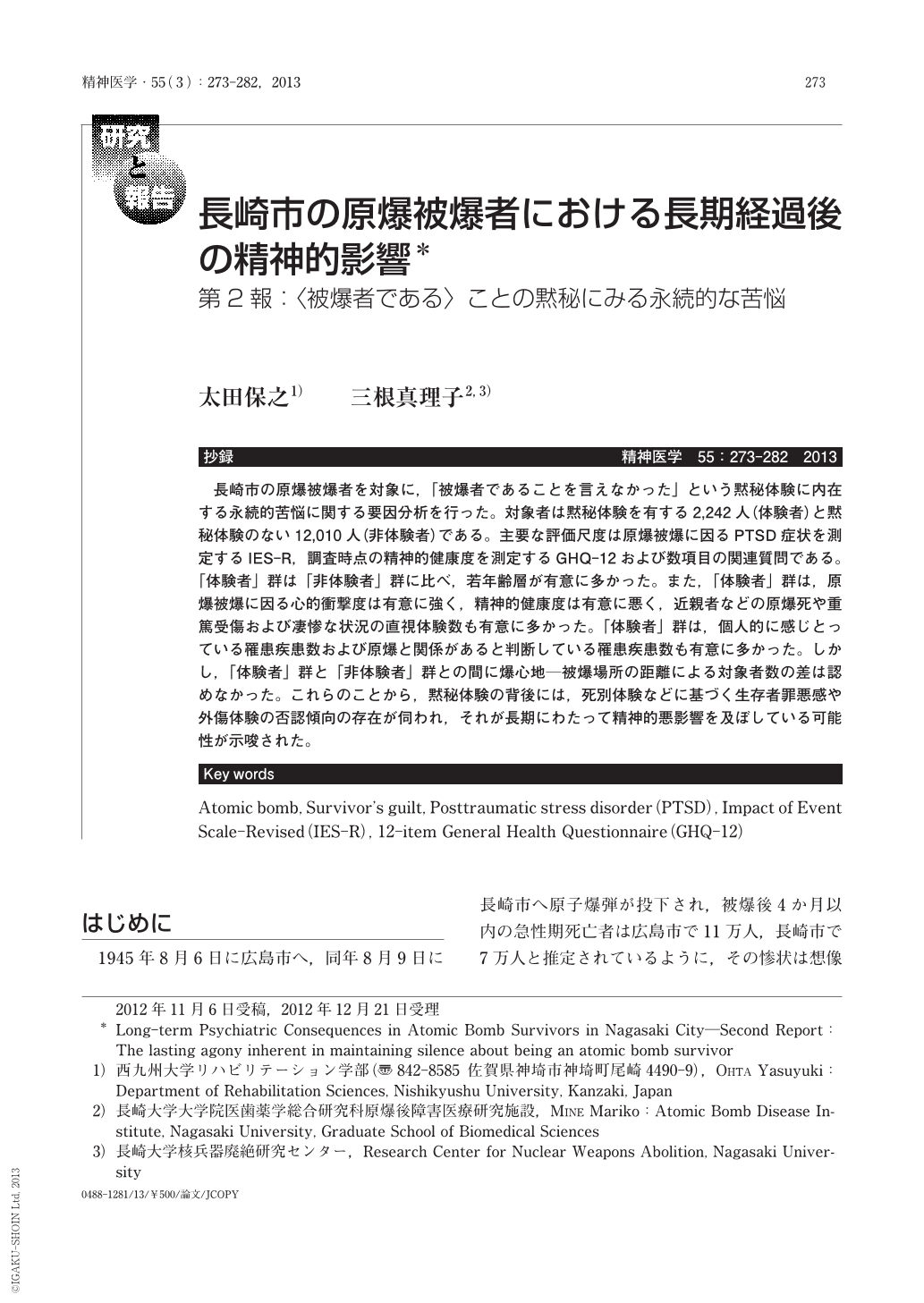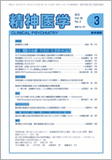Japanese
English
- 有料閲覧
- Abstract 文献概要
- 1ページ目 Look Inside
- 参考文献 Reference
- サイト内被引用 Cited by
抄録
長崎市の原爆被爆者を対象に,「被爆者であることを言えなかった」という黙秘体験に内在する永続的苦悩に関する要因分析を行った。対象者は黙秘体験を有する2,242人(体験者)と黙秘体験のない12,010人(非体験者)である。主要な評価尺度は原爆被爆に因るPTSD症状を測定するIES-R,調査時点の精神的健康度を測定するGHQ-12および数項目の関連質問である。「体験者」群は「非体験者」群に比べ,若年齢層が有意に多かった。また,「体験者」群は,原爆被爆に因る心的衝撃度は有意に強く,精神的健康度は有意に悪く,近親者などの原爆死や重篤受傷および凄惨な状況の直視体験数も有意に多かった。「体験者」群は,個人的に感じとっている罹患疾患数および原爆と関係があると判断している罹患疾患数も有意に多かった。しかし,「体験者」群と「非体験者」群との間に爆心地―被爆場所の距離による対象者数の差は認めなかった。これらのことから,黙秘体験の背後には,死別体験などに基づく生存者罪悪感や外傷体験の否認傾向の存在が伺われ,それが長期にわたって精神的悪影響を及ぼしている可能性が示唆された。
We conducted a factor analysis on the lasting agony inherent in the experience of “having maintained silence about being an atomic bomb survivor” among atomic bomb survivors in Nagasaki city. Subjects comprised 2,242 individuals who had the above experience (the experience group) and 12,010 individuals who did not have the experience (the non-experience group). The primary assessment scales used were the IES-R scale, which evaluates the PTSD symptoms resulting from exposure to the atomic bomb, the GHQ-12, which evaluates mental health, as well as a number of related question items. The experience group had a significantly higher proportion of young individuals than the non-experience group. In addition, the experience group had a significantly greater psychological impact resulting from exposure to the atomic bomb, significantly poorer mental health and a significantly greater number of experiences in which they directly witnessed tragic events such as death or serious injury among close relatives and others in the atomic bombing. Individuals in the experience group also had a significantly greater number of perceived illnesses as well as illnesses that they judged to be related to exposure. However, no difference was seen in relation to the distance from the hypocenter at the time of exposure between the experience and non-experience groups. These findings suggest the presence of survivor's guilt and a tendency to deny traumatic experiences underlie the act of maintaining silence about being an atomic bomb survivor, thereby exerting negative long-term psychological effects.

Copyright © 2013, Igaku-Shoin Ltd. All rights reserved.


